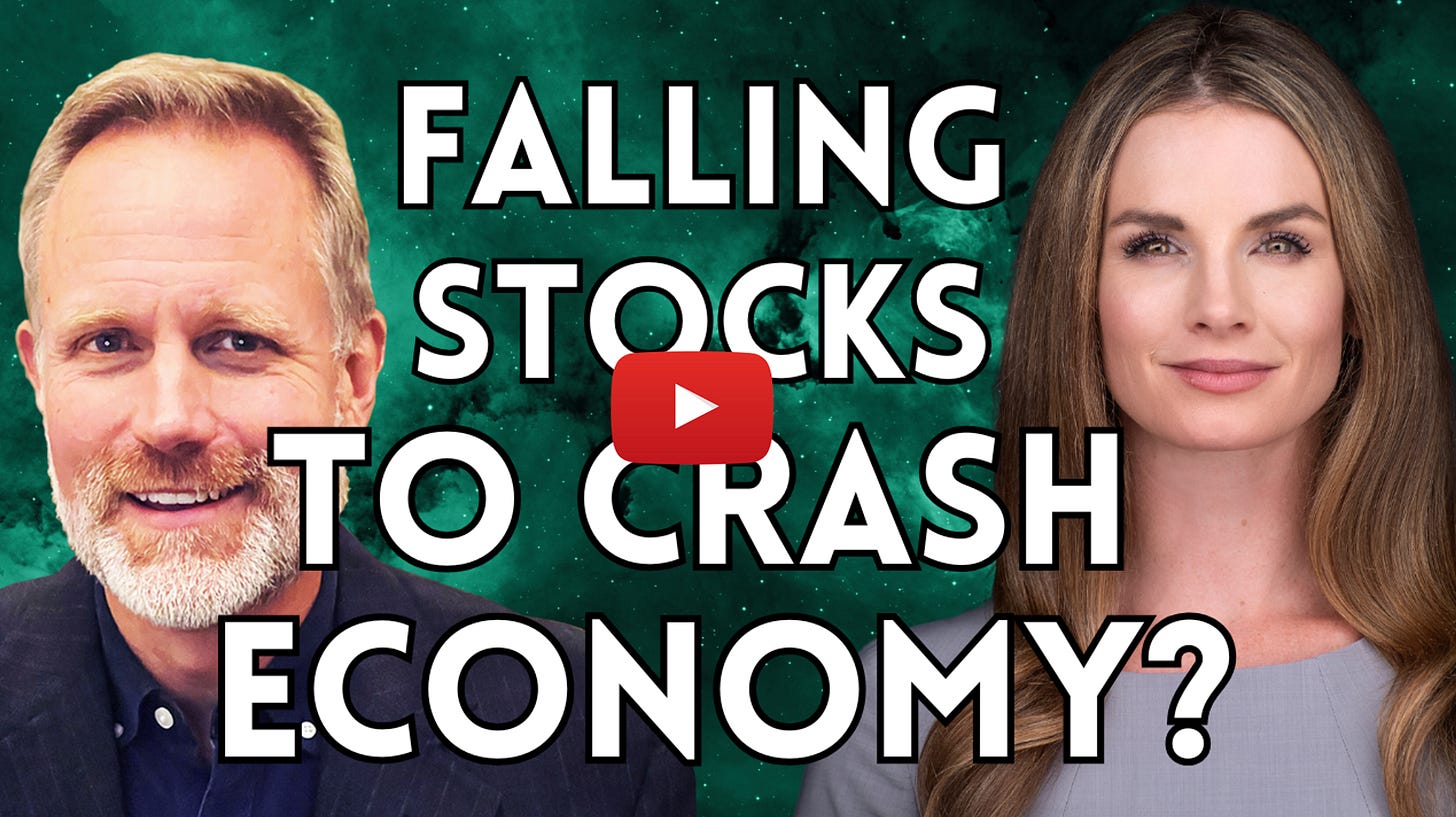Will A Market Correction Trigger A Recession This Year? | Cameron Dawson
Rising volatility is becoming a notable macro risk in 2025
When today's guest was last on this program back in October, she advised investors to prepare for a more volatile year ahead in 2025 - a year in which she predicted 'the game would start to get harder".
So far, with the major indices stuck bouncing up & down in a trading range, her prediction is looking prescient.
Now that we're two months into the year, and we have more clarity around the new Trump administration and its policies, what does she see ahead for the markets?
To find out, we're fortunate to welcome Cameron Dawson, Chief Investment Officer at NewEdge Wealth, back to the program today.
Cameron advises investors to prepare for continued volatility this year, and warns that too much of it in the markets could trigger a negative feedback loop in the economy.
To learn how she’s positioning client capital for the bumpier road ahead, click here or on the video below:
IMPORTANT NOTE: tickets for our Spring online conference are — for a limited time — still available at the Early Bird discounted price (our lowest!). So, if you haven’t yet, get your ticket now!
I’m so grateful to everyone who has kindly supported me by becoming a premium subscriber to this Substack. It’s making an important difference in helping me fund the substantial operating costs of running Thoughtful Money.
Premium supporters receive my “Adam’s Notes” summaries to the interviews I do, the wildly-popular MacroPass™ rotation of reports from esteemed experts, VIP discounts, plus periodic advance-viewing/exclusive content. My Adam’s Notes for this discussion with Cameron are available to them below.
If you, too, would like to become a premium subscriber to this Substack (it’s only $0.52/day), then sign up now below:
Adam’s Notes: Cameron Dawson (recorded 2.13.25)
Cameron forecasts a deceleration in U.S. GDP growth as the economy loses key tailwinds from previous years. While a recession is not expected, the economy will not maintain the near-3% growth rates seen in 2023 and 2024. A structurally tight labor market and capital investments in technology and infrastructure will help sustain growth, but reduced productivity gains, tighter immigration policies, and declining liquidity support pose headwinds. Business investment may also moderate if borrowing costs remain high.
The stronger-than-expected GDP growth in 2023 (nearly 3% instead of the projected 0.5%) was fueled by an influx of immigrant labor, productivity gains, and Treasury-driven liquidity injections. These factors helped sustain economic expansion despite rising interest rates. However, in 2025, immigration is slowing due to policy restrictions, Treasury liquidity injections are fading, and further productivity gains are uncertain. This shift raises concerns about whether the economy can sustain prior momentum without these unique boosts.
While inflation is not expected to surge, it will likely remain above the Fed’s 2% target, complicating monetary policy decisions. Wage growth has moderated, reducing one source of inflation, but tightening immigration policies could shrink the labor pool, potentially reigniting wage pressures. Additionally, Cameron warns of external risks such as rising oil prices, new trade tariffs, and supply chain disruptions, which could push inflation higher. Since these factors are largely outside the Fed’s control, inflation trends remain unpredictable.
Cameron argues that higher interest rates have not slowed the economy as much as anticipated due to structural changes in borrowing. 95% of U.S. mortgages are fixed-rate (compared to 65% in 2005), shielding homeowners from rate hikes, and many corporations locked in low rates during the pandemic. This has blunted the impact of higher rates on household and corporate finances. Despite the Fed’s aggressive tightening, net interest expenses actually declined in 2023-2024 as companies benefited from higher cash yields. This suggests the economy has been more resilient to rate hikes than expected, which may force the Fed to keep rates elevated for longer.
A major financial risk in 2025 is
Keep reading with a 7-day free trial
Subscribe to Adam Taggart's Thoughtful Money® to keep reading this post and get 7 days of free access to the full post archives.





